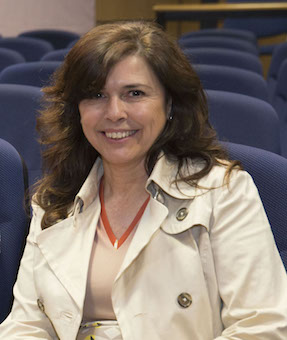
The incorporation of virtual reality entertains children and it reduces their fatigue feeling. That was found by a study developed by the researchers of the UV, UPV, the University CEU Cardenal Herrera and the Spanish Biomedical Research Centre in Physiopathology of Obesity and Nutrition. The findings of the study were published last February in the journal Cyberpsychology, Behavior, and Social Networking.
Virtual reality can be a very helpful tool for the treatment of childhood obesity. As it was shown by a researchers team of the Universitat de València, the Universitat Politècnica de València, the University CEU Cardenal Herrera and the Spanish Biomedical Research Centre in Physiopathology of Obesity and Nutrition (CIBEROBN), part of the Institute of Health Carlos III, the clinical practical implementation of these technologies will contribute to fight against sedentary lifestyle and it will favour exercise among obese children.
‘The key lies in children having more fun when exercising, so they forget they are running and, therefore, the fatigue feeling diminishes. Virtual reality entertains them and they tolerate better an exercise session’, points out Jaime Guixeres, researcher of the LabLeni of the Universitat Politècnica de València.
To reach this conclusion, Valencian researchers carried out a study with a total of 109 children, between 10 and 15 years old, most of them participants of the Children's Summer School of the Universitat Politècnica de València.
The tests were two sessions of continuous walking and running in the treadmill, of eight minutes each: in one of them, children were immerse in a virtual environment -created by the researchers of the UPV- that included an avatar that was moving at the same time as the participant; the second one was continuous walking and running without any extra element.
In each of them, the researchers evaluated the cardiovascular response of children, as well as different psychological variables such as fatigue, sense of enjoyment and the attention capacity of children. The analysis of the psychological variables was carried out by means of a test designed by the researchers of the Universitat de València.
From this variables, they conclude that obese children have more fun and are more distracted when you implement virtual reality, which has an impact in this reduction of the fatigue feeling. In the case of normal weight children, there was hardly any difference of attention/distraction between exercise with the virtual environment and without it.
For Rosa Baños, from the Faculty of Psychology of the Universitat de València, this study allows to go further in the understanding of the mechanisms through which virtual reality can be key for the change from a sedentary life to active life in the treatment of childhood obesity. ‘The results found show its validity as a helping tool in this cases; and its incorporation to this programme could be very easy’ adds Ausiàs Cebolla, member of the research team of the Universitat de València.
eference:
Baños, R.M., Escobar, P., Cebolla, A., Guixeres, J., Alvarez Pitti, J., Lisón, J.F., Botella, C. Using virtual reality to distract overweight children from bodily sensations during exercise. Cyberpsychology, Behavior, and Social Networking. Volume 19, Issue 2, February 2016. DOI: 10.1089/cyber.2015.0283
Last update: 29 de april de 2016 14:54.
News release


















